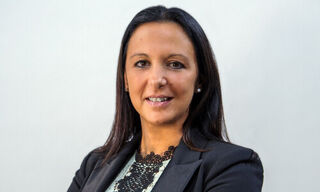Basler Kantonalbank aims to reach beyond the narrow confines of the home market with the help of its Bank Cler subsidiary. But the bank's plan of how it will achieve the feat has upset the Bank Cler managers several times over.
The first abrupt departure by a Bank Cler executive came a little more than two years ago: Hanspeter Ackermann, then CEO of Bank Cler, stepped down because he didn't agree with the board about the strategy for the former Bank Coop.
Today, history repeats itself, with yet another upheaval at Bank Cler. CEO Sandra Lienhart and her executive committee is stepping down, to be replaced by BKB's digital executive Mariateresa Vacalli.
Bid for Closer Integration
The abrupt departure by the Bank Cler executives follows the announcement of an efficiency program by Basler Kantonalbank and Bank Cler in the summer, which included 40 job cuts. At the heart of the program was the closer integration of Bank Cler into the group.
Basil Heeb, the new chief executive of BKB, was the man behind the new efficiency program. His predecessor, Guy Lachapelle, once told finews.com that Bank Cler was the speed boat within the company, and, shortly before Ackermann had departed, BKB had rebranded the bank from Bank Coop into Bank Cler, an expensive exercise designed to relaunch the company.
Smartphone Bank
Since that relaunch, Bank Cler invented the smartphone bank Zak, hoping to win 200,000 new customers within a few years. Today, less than 10 percent of this target has been met, with rivals overtaking the Basel-based firm seemingly at ease.
The expansion strategy at Cler has had an adverse impact on the cost-income-ratio, which is worse than at BKB. If Heeb chooses to cut back at the speed boat Cler to save money, the reason for its position within the group may seem less obvious.
Digitization Expert
The new head of Cler, which has come from within BKB, will likely be more helpful in integrating Cler and put a bigger emphasis on the customer interface. Vacalli, an expert in digitization, has less than a year's experience in finance, quite unlike her predecessor, Lienhart.
The question she faces is whether it is still opportune to have two separate banks with independent back offices or whether it wouldn't make more sense to enhance BKB's brand by integrating the entire banking business – cutting back on operating expenses.



































